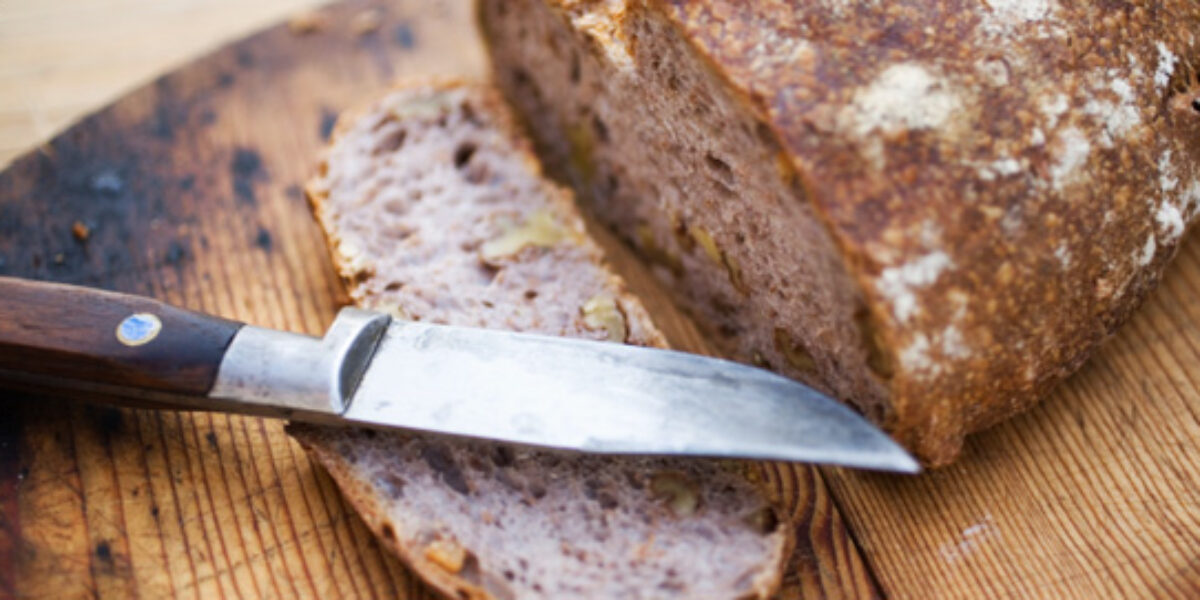Bread was a basic food and important symbol for people in the Ancient Near East. Find out how bread was important in Scripture.
Bread has always been an important and basic food for people (Gen 3.19). In ancient times, bread was made at home by wives (Gen 18.6) and daughters (2 Sam 13.7-10). It was usually made fresh each day, but because it could last for several days without going bad, it could also be given to those setting out on a long journey (Gen 45.23). Bread was offered to strangers who passed through the land (Gen 14.18), and when God’s people were disobedient, God warned them that their supply of daily bread would be taken away as punishment (Lev 26.23-26).
Most bread was made in flat cakes on flat stones or in pans. Some was baked into larger, thicker loaves that were placed on a special table in the temple and offered to God as “sacred loaves of bread” (Exod 25.23-30). Only priests could eat this bread, but David and his supporters were once given some by priests when they were starving (1 Sam 21.1-6). God provided bread for the Israelite people as they were wandering through the desert of Sinai on the way from Egypt to the promised land. They called this bread manna, which in Hebrew means, “What is this?” This bread is also referred to as the “bread from heaven” (Exod 16.4).
Ancient documents discovered in the twentieth century known as the Dead Sea Scrolls reveal that Jews in the community at Qumran shared meals of bread and wine. These meals were both a celebration of good times in the present and a celebration of the day when God would defeat their enemies and send the Messiah. Jesus’ followers believed that he was God’s chosen Messiah and the true bread from heaven that gives life (John 6.32-35). Jesus told his followers to ask God to give them the basic food (bread) they needed to live from day to day (Luke 9.3). After Jesus was taken to heaven, they continued to celebrate their new life together as God’s people by “breaking bread” in ordinary meals (Acts 2.42-46), and by sharing in the bread of communion, which Jesus said was his body (Mark 14.22-25; 1 Cor 11.25,26).




